10-09-2025
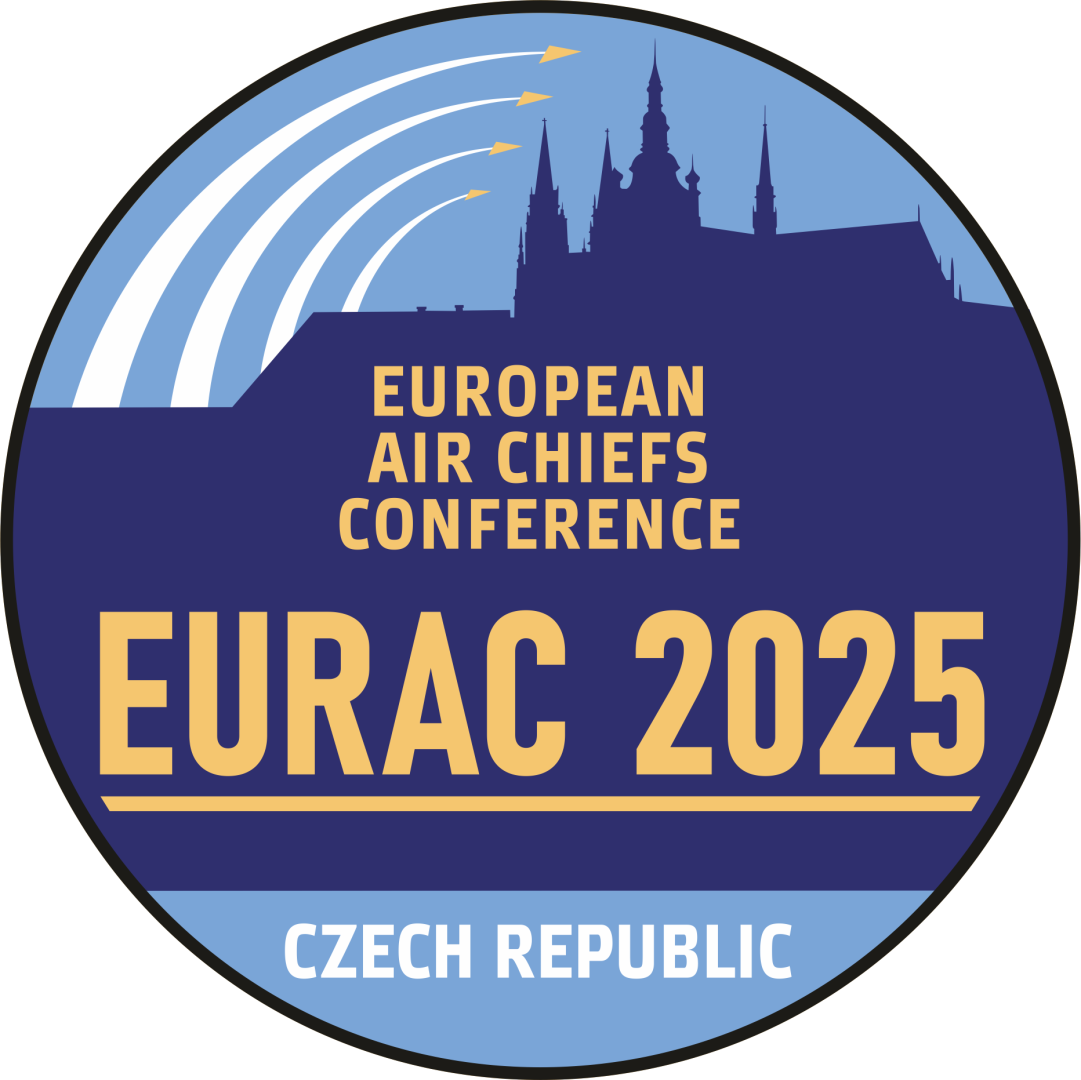
Prague, 3–5 September 2025 – As Russia’s aggression against Ukraine enters another phase and tensions rise in the Middle East and Asia, Prague became the venue for the prestigious European Air Chiefs Conference (EURAC 2025). More than twenty air force commanders from across Europe, along with representatives of partner nations and expert institutions, gathered in the Czech capital. The joint message was clear: NATO remains united, determined, and prepared to face the challenges of a multipolar world.
The central theme of the conference was:
“Air Dominance in a Multipolar World: Strategic Adaptation of European Air Forces to the Changing Global Alliance Dynamics.”
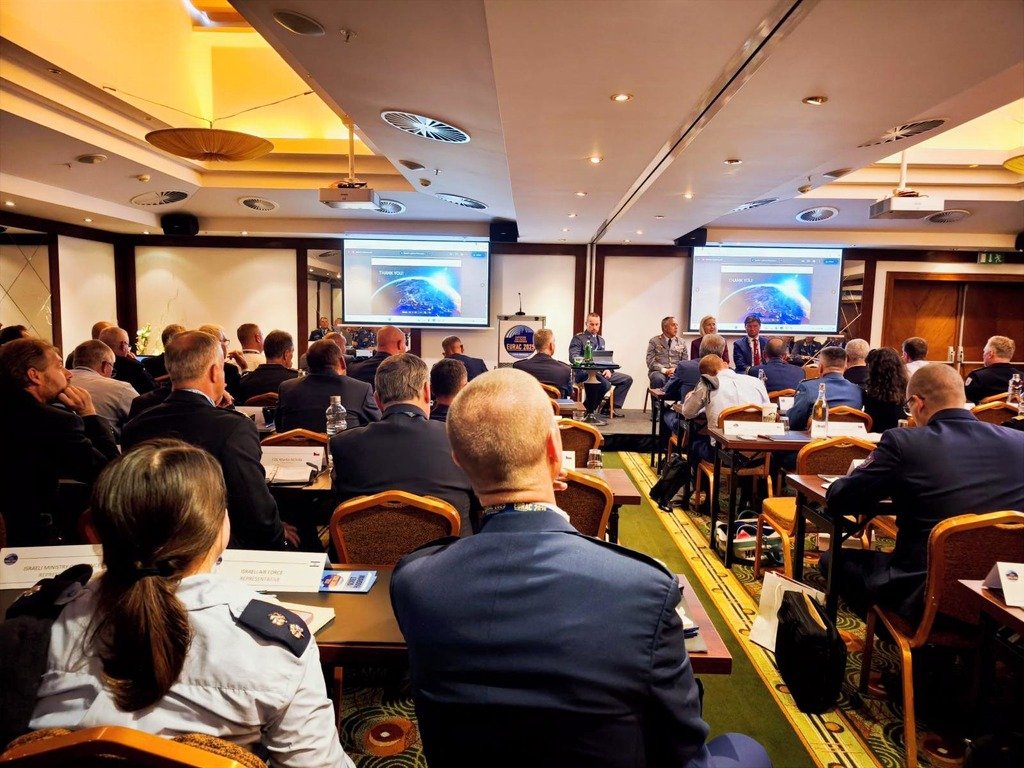
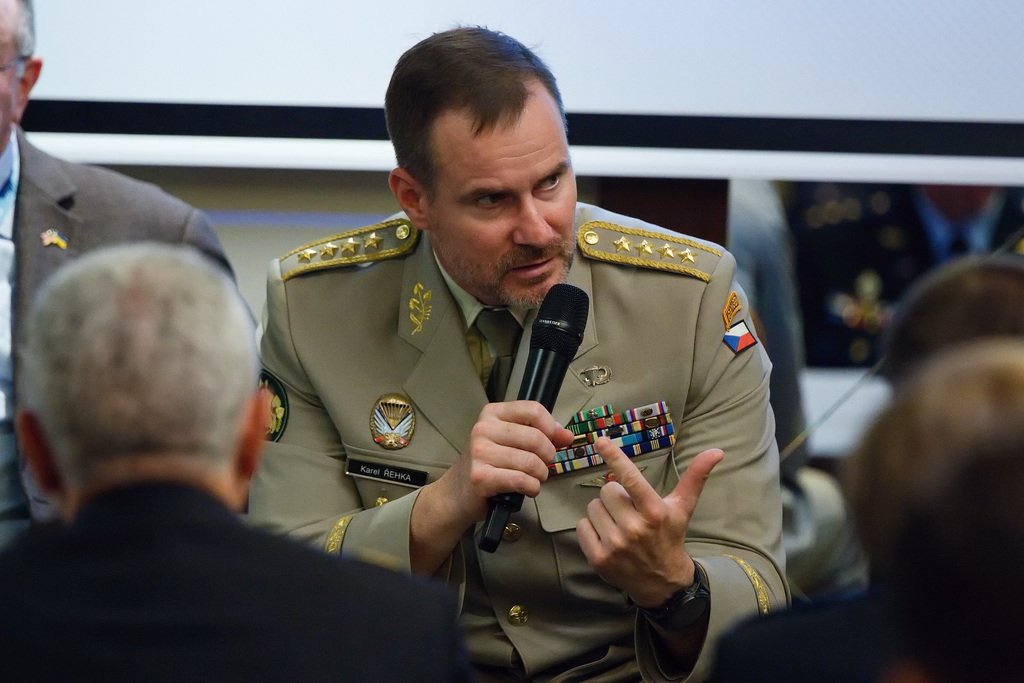
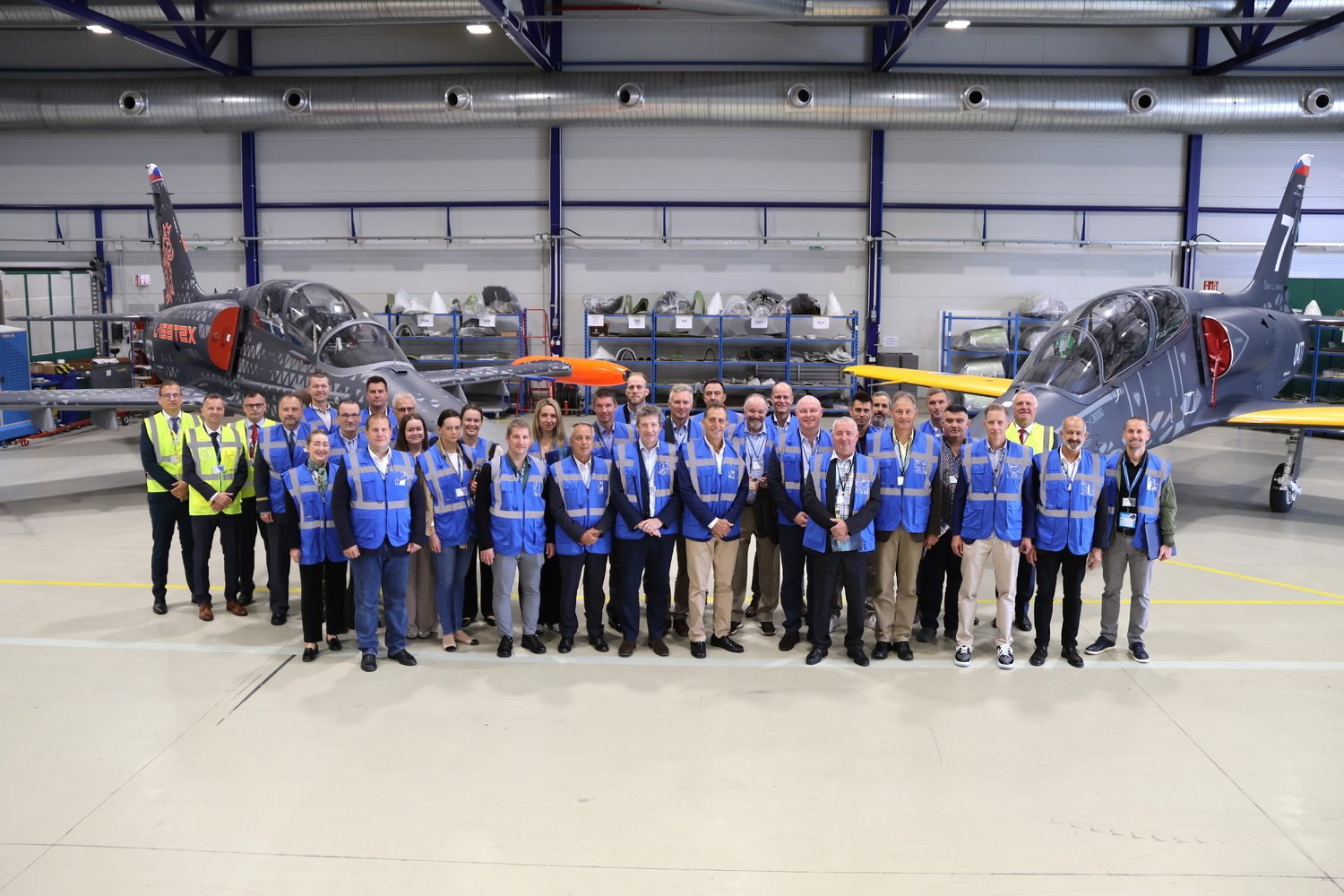
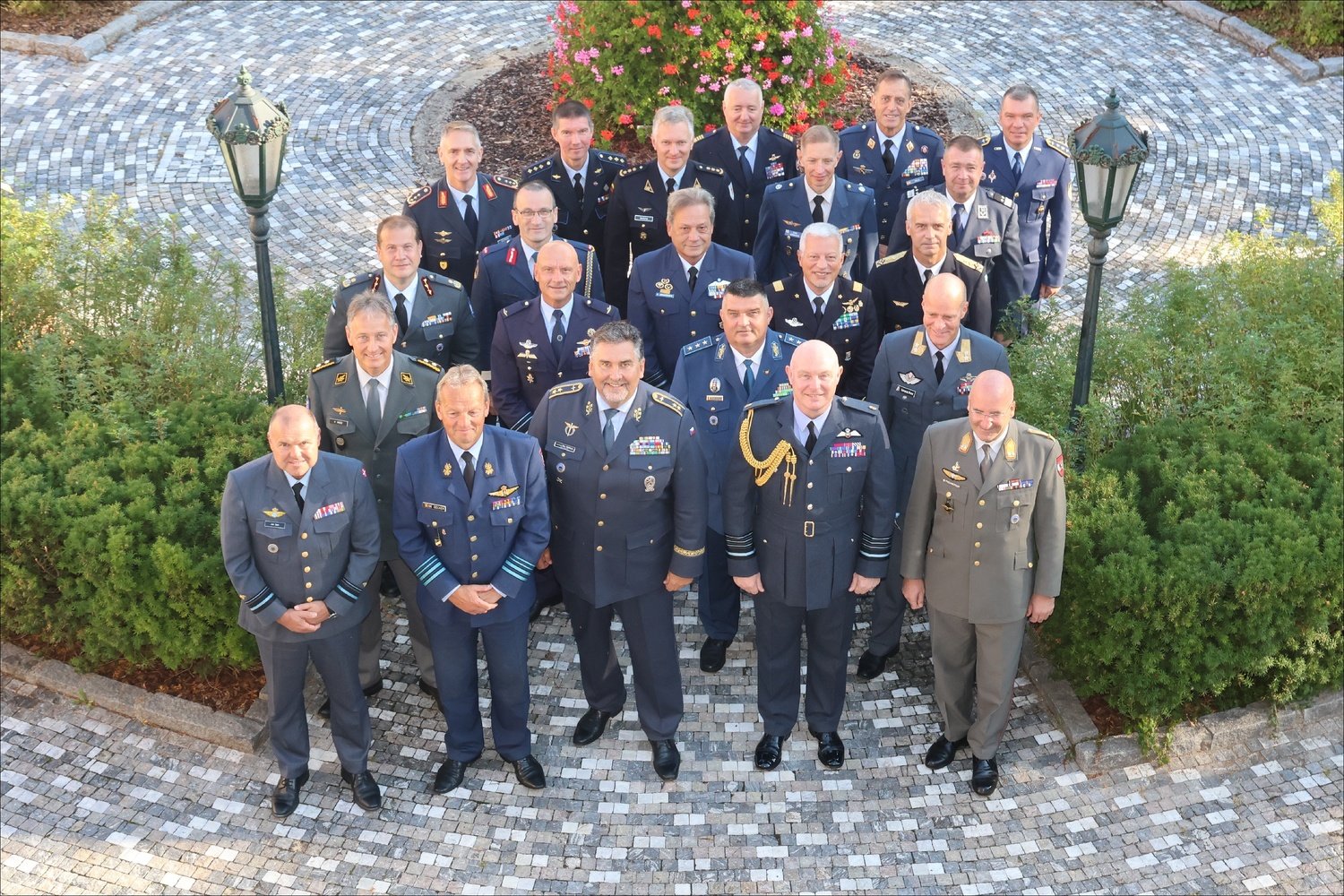
Air Forces in Modern Conflict
The first session brought the debate directly to the current battlefields of Ukraine and Israel. Discussions focused on drone warfare, electronic warfare, cyberattacks, integrated air defense, and hypersonic weapons – threats that are fundamentally reshaping the character of conflict and compelling European air forces to adapt rapidly.
Ukrainian Deputy Commander of the Air Force, Major General Serhii Holubtsov, emphasized that his country stands on the front line for all of Europe:
“Ukraine is fighting not only for its own freedom but also for the security of the entire continent. Drones account for up to 80% of Russian losses, but we need the support of our allies to continue.”
He also stated a crucial prerequisite for air superiority:
“Without sufficient modern aircraft and munitions, air superiority cannot be achieved.”
He further highlighted the role of tactics:
“Our experience confirms that Russian air defense is not impenetrable. Flexibility, frequent relocations, and innovation allow us to strike effectively. But we need modern air-defense assets and Western aircraft to change the dynamics of the war.”
From Israel, Lieutenant Colonel Ouri Catarivas, Head of International Relations at the Israeli Air Force, stressed the importance of technology and preparedness:
“The lesson is clear: only thorough preparation and modern technologies enabled us to defend the state against massive retaliation. Israel cannot afford to fail – and neither can Europe today.”
He added that conflicts are proving grounds:
“Ukraine and Israel show how cheap and smart drones can be used against an adversary’s unmanned systems. Integrating artificial intelligence into development is essential; otherwise, the adversary will outpace us.”
Dr. Jack Watling of the Royal United Services Institute (RUSI) warned that the West must overcome its own weaknesses:
“Russia can circumvent parts of the sanctions regime and is seeking new allies. It is therefore vital to connect security policy with the defense industry and to react faster than our adversary.”
European Strategic and Security Autonomy
The second session responded to shifts in U.S. strategy and intensifying global competition. Discussions focused on the need for greater European defense investment, the development of domestic technologies, reducing dependence on the United States, and building partnerships beyond the Euro-Atlantic area.
Chief of the General Staff of the Czech Armed Forces, General Karel Řehka, warned:
“Russia remains the greatest threat to Europe. The future of all of us is being decided in Ukraine. We must adapt, modernize, and prepare not only our armed forces but also our societies.”
He also underlined the importance of layered defense:
“Air superiority is the key to operational success. For the Czech Republic, this means significant investments in multi-layered air defense – from man-portable systems to long-range assets – and the application of artificial intelligence.”
Former Supreme Allied Commander Europe, General (Ret.) Philip Breedlove, added:
“Europe lulled itself for too long into believing that peace was a given. We thought Russia was a friend and partner, but it is not. They are adversaries; they do not want peace and seek to restore the ‘Russian World’. Putin will not stop on his own – we must show that our resolve is stronger than his aggression.”
Ilan Mazushan, Deputy Director of the Political-Military Affairs Department at Israel’s Ministry of Defense, spoke about the importance of industrial resilience:
“Israel is surrounded by threats and must rely on its own resilience and industry. Just as we are grateful to Czechoslovakia for its help in building our air force, today we offer Europe our experience – from hardened shelters to Iron Dome and the F-35.”
Innovation, Technology, and Transformation
The third session addressed modernization programs, fifth-generation aircraft, and breakthrough technologies designed to ensure operational superiority in the future.
Mara A. Motherway, Vice President for Strategy and Business Development at Lockheed Martin, explained:
“A fifth-generation aircraft is not just a fighter jet. It is a flying sensor, a node that connects information and enables command to respond in real time. This is the future, and it has already begun.”
Commander of the Czech Air Force, Major General Petr Čepelka, emphasized that fifth-generation aircraft are indispensable in countering modern threats. He pointed to the Czech acquisition of the F-35 and the development of a multi-layered air defense, strengthened by SPYDER systems interoperable with NATO’s architecture:
“Air dominance is not just about aircraft. A robust ground-based air defense is just as essential as the acquisition of the F-35.”
General Breedlove added:
“Every investment that saves a soldier’s life is worth it. Modern equipment and readiness mean fewer casualties.”
Cooperation as the Path to Security
On the sidelines of EURAC 2025, numerous bilateral meetings took place, covering projects such as the F-35, air-defense systems, and the C-390 Millennium multirole transport aircraft.
According to Czech Air Force Commander Major General Petr Čepelka, the meetings confirmed the necessity of close cooperation among European air forces:
“Together we are stronger. The Czech Republic will always stand alongside its allies, because our security is inseparably linked with the security of the entire Alliance.”
A separate meeting was also held among the countries involved in the C-390 Millennium program. A representative of Embraer presented the project’s current status and prospects, while Brigadier General Jaroslav Falta, Commander of the 24th Air Transport Base, shared the Czech Republic’s early experience with introducing the aircraft into service and training specialists. The meeting highlighted that closer cooperation among C-390 users will be essential for effective integration into European air forces, future sharing of specialized equipment, and ensuring maximum flexibility in multi-domain operations.
The Czech Republic: A Reliable Link in the Chain
Hosting EURAC 2025 was not only a prestigious moment for the Czech Republic but also an opportunity to demonstrate that it is a responsible and reliable ally – one that not only benefits from collective defense but also actively contributes to it through the modernization of its air force, development of air defense, and the sharing of expertise.
The conference in Prague sent a clear signal:
Europe will not be intimidated. NATO remains united, innovative, and ready to face all challenges – from hybrid threats and drone warfare to ballistic missiles. And the Czech Republic is a proud part of this defensive shield.
EURAC 2025 was co-organised by the Future Forces Forum, which was invited by the Air Force Command of the Czech Armed Forces to join the organisation of the conference.
Edited: Kateřina Urbanová, 9 September 2025
Photo: MoD CR